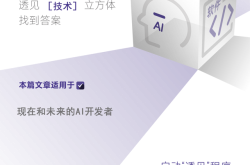Zipse: Overcoming Tesla with the BMW Model
![]() 12/18 2024
12/18 2024
![]() 644
644
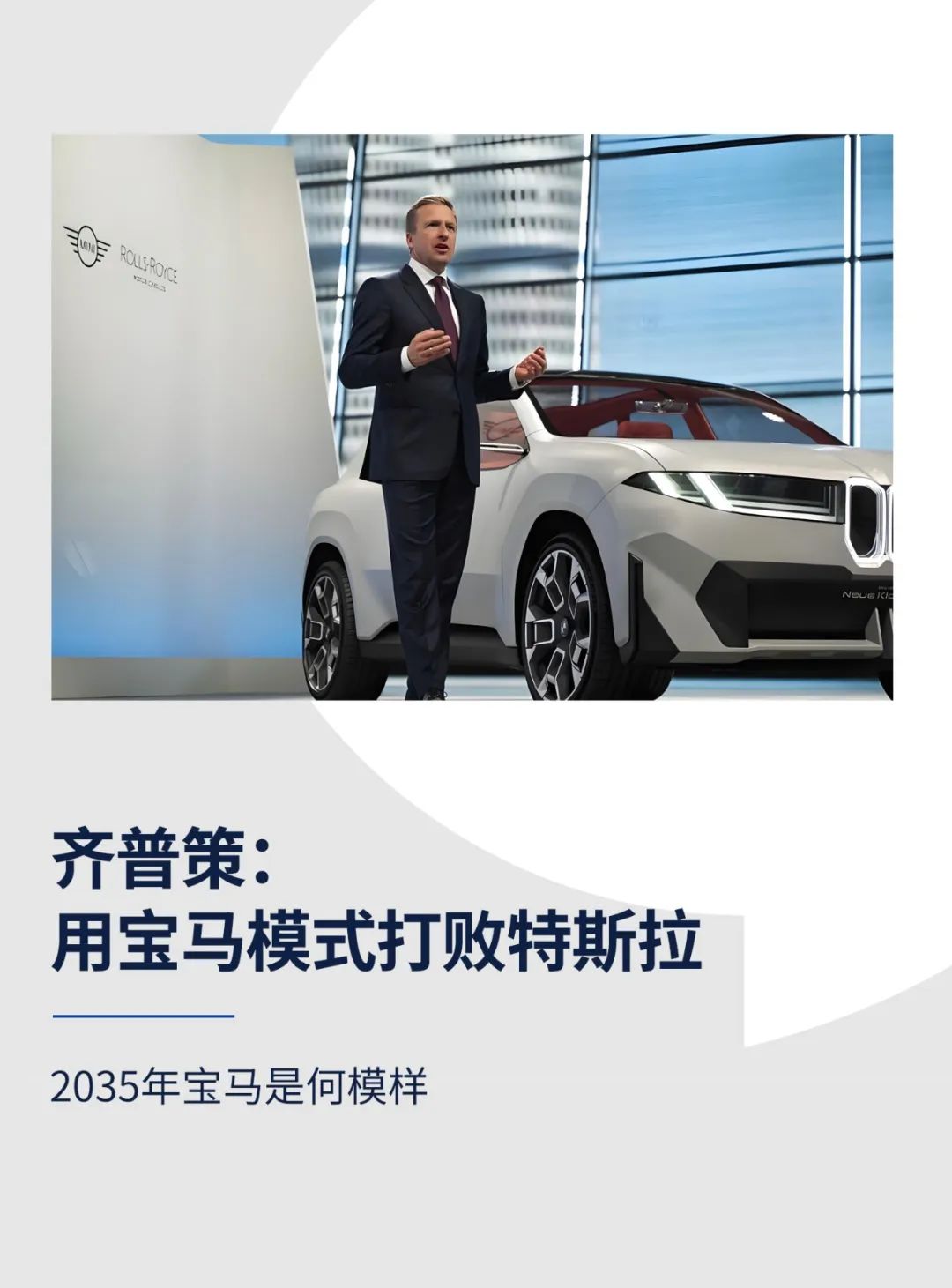
Compiled by | Yang Yuke
Edited by | Ge Bangning
Produced by | Bangning Studio (gbngzs)
For BMW Group, 2025 marks a pivotal year, as it introduces its 'New Generation' (Neue Klasse) family of pure electric vehicles.
The 'New Generation' models will feature a new architecture and the latest software. The first batch of test vehicles for the new generation X models has rolled off the production line at BMW's Debrecen plant, with mass production anticipated by the end of 2025. These test vehicles are equipped with BMW's sixth-generation electric motors, manufactured at BMW's Steyr plant.
Meanwhile, across the ocean, preparations are in full swing at the Tiexi plant in Shenyang, China. The first white body of a new-generation model has been trial-produced, and the sixth-generation power battery will enter trial production by the end of the year.
BMW Group CEO Oliver Zipse believes that the 'New Generation' will become the benchmark for 'mobility in the next decade.'

'BMW is already very successful in China'
On November 7, 2024, at the annual conference of Automobilwoche, a sister publication of Automotive News Europe, Zipse shared his views on automotive tariffs. During the conference, he also explained why BMW believes that the EU's stricter CO2 emission targets for 2025 should remain unchanged.
Below is the content of the interview, slightly edited by Bangning Studio.
With the launch of the 'New Generation,' BMW is undergoing fundamental changes, such as reorganizing the R&D department to redefine its design approach. Is this a risk that today's CEOs must take? For the 'New Generation,' we have indeed set the bar higher than ever before. 2025 is the optimal time to achieve this goal. Regardless, we will introduce numerous new-generation technologies. Combined with the new architecture, these technologies offer boundless possibilities—just in time for the further development of electric vehicles.
Is this a favorable time for the development of electric vehicles? Don't be deterred by the controversy in Germany. The decline in the German market is due to the cancellation of subsidies at the end of 2023. However, for BMW, sales of pure electric vehicles continued to rise in 2024. In the coming years, electric transportation will remain our strongest growth driver, particularly the 'New Generation.'
How many 'New Generation' models do you plan to launch? We will start with two models. One will be in the same segment as today's BMW X3 (premium mid-size SUV), followed by a sports sedan (similar in size to the 3 Series). These are the most popular segments, so we intend to commence with the core of the BMW brand and swiftly expand the series to other segments.
In China, the market share of German automakers is being eroded by local brands. How much market share can BMW maintain in China? China boasts a market of approximately 23 million units and is by far the largest automotive market globally. It is not surprising that this market is normalizing. As we have already witnessed in other industrialized countries, local manufacturers will produce most of the products sold in the market. This has been the case in the US and Germany for a long time.
BMW's market share in China ranges between 3% and 4%, depending on market conditions. Therefore, if we have a 4% share in a market of 23 million vehicles, that is also considered very successful.
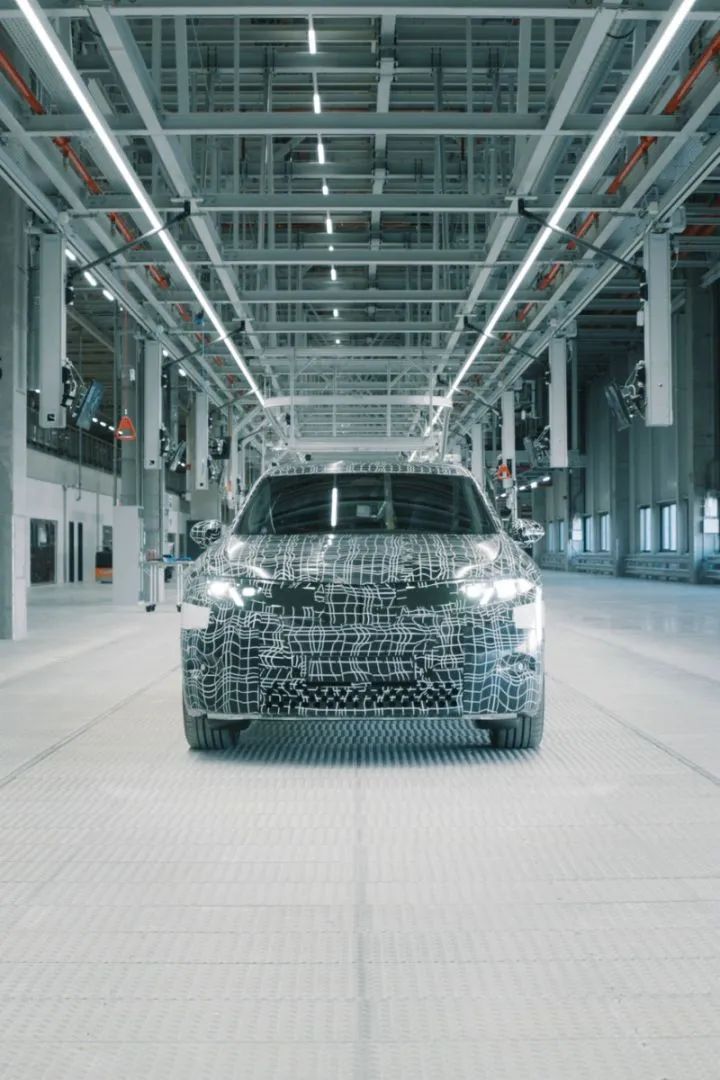
Let's discuss free trade, which seems to be under attack from protectionist policies in some countries. What impact will Trump's second term have on BMW? Our second base is in South Carolina. Over the past 30 years, we have invested over $13 billion there—regardless of whether the president is a Republican or a Democrat. At the Spartanburg plant, we produce approximately 400,000 vehicles per year, with more than half exported to over 100 markets.
Therefore, BMW is one of the largest automotive exporters in the US and holds significant importance for local value creation. We are preparing for electric vehicles. Near Woodruff, we are building a new battery factory for the sixth-generation high-voltage battery. Soon, pure electric models will also be produced in Spartanburg.
Will BMW also produce the 'New Generation' at the plant in Debrecen, Hungary? The plant was built due to the need for corresponding capacity. We will make decisions for the Debrecen plant accordingly. The necessary framework conditions there are highly suitable. The local team is preparing for the final sprint towards the production of the 'New Generation.' In Debrecen, the production of test vehicles has just commenced, marking an important milestone for the commissioning of the new plant.
Currently, there is growing opposition to the EU's stricter CO2 emission limits that will take effect next year. What is BMW's position? Since 2019, we have been aware of the 2025 (emission) targets. We have adjusted our model policy accordingly to further enhance powertrain efficiency. Reducing CO2 emissions is not solely about electric vehicles. All designs aim to improve efficiency, including brakes, powertrains, and aerodynamics.
Almost all BMW internal combustion engines utilize 48-volt technology. Manufacturers must make such investments in advance. We believe there is no reason to postpone the 2025 CO2 reduction targets.
What about the EU's ban on internal combustion engines from 2035? Technological openness is crucial for Europe's competitiveness. The EU needs a policy that fosters progress and economic growth rather than setting additional barriers.
The EU's policy of banning internal combustion engines from 2035 contradicts this principle. It restricts successful technologies but fails to generate sufficient investment in new pathways and technologies to achieve Europe's climate goals.
What is a better solution? For instance, various regulatory initiatives should be better synchronized. The CO2 emissions regulations for new cars are separate from the Renewable Energy Directive, which regulates the CO2 balance of fuels.
Why hasn't the oil industry been given more ambitious CO2 emission targets for fuels? It will have to increase the proportion of low-CO2 or CO2-neutral fuels, such as E25 or HVO100 (renewable diesel). We are currently paying in advance. From January next year, we hope that all diesel models produced in Germany will be filled with HVO100 before being delivered to dealers. This so-called first factory fill-up is not a full tank of fuel, but it will demonstrate to customers that HVO100 is a mature diesel alternative—reducing CO2 emissions by 90% overall.
BMW is investing in hydrogen energy. When will this technology mature? In 2028, we will achieve mass production of hydrogen fuel cells. We are jointly developing this technology with Toyota Motor Corporation. This decision is based on an analysis of the world market situation.
We are monitoring the direction of regulation and customer expectations. The advantage is that we can utilize an installation space very similar to that of electric vehicles to install fuel cells, which many people underestimate. We are pleased to take a pioneering role in this area alongside Toyota.
What will BMW look like in 2035? With the 'New Generation,' we will showcase the mode of transportation for the next decade. Driving dynamics and emotional design remain at the core of BMW. Simultaneously, the digital experience is increasingly becoming a crucial purchasing criterion. Therefore, the 'New Generation' models will be equipped with a new generation of software.

'Not Putting All Eggs in the Electric Basket'
About a decade ago, we were all told that electric vehicles were the future, the sole future for the automotive industry. This narrative was particularly prevalent in Europe, with countries like the UK even mandating the phasing out of all internal combustion engine vehicles by 2030.
Automakers also jumped on this bandwagon and began discussing how to cease production of gasoline and diesel engine vehicles before the next generation. Europeans, especially automakers with high self-esteem, believed they would lead the field of electric vehicles.
Earlier this year, as a BMW body glided down an assembly line in Munich, with sparks flying like rain from robot welders, it was challenging to discern which vehicles were battery-powered, which were fueled by internal combustion engines, or which were hybrids. At the time, many analysts did not view this as a positive development.
BMW Group's electric and fuel vehicles are produced on the same assembly line and are indistinguishable from the outside. The practice of using the same body for electric, hybrid, gasoline, and diesel vehicles has always been perceived as an awkward and inefficient compromise that some established automakers must resort to when competing with Tesla and emerging Chinese automakers.
However, before they had time to mock BMW's 'compromise' policy, the automotive industry quickly reversed course. First, Tesla, and then Chinese automakers, swiftly 'stole' any technological lead that European automakers had prided themselves on.
Then came the decisive blow—consumer preference. Consumers seem to have hit the pause button before making a firm decision to purchase an electric vehicle. Concerns about charging—especially in extreme weather—and hidden costs such as mining rare minerals and coal-fired power generation have surfaced.
In some countries, such as Norway, which earns money from exporting hydrocarbons, electric vehicles account for the majority of sales. But in other parts of Europe, electric vehicle sales are stagnating. In fact, pure battery electric vehicles appear to have plateaued in most major markets except China.
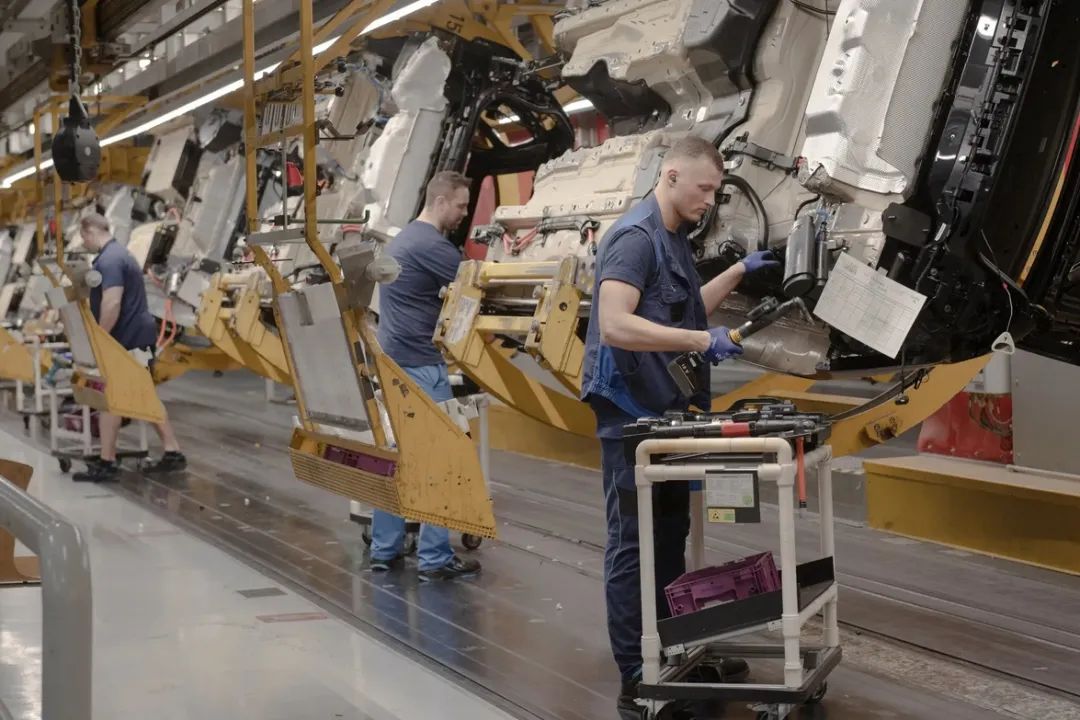
None of this came as a surprise to BMW Group. Amidst the rush to electrify and tout 'green credentials,' BMW is the only manufacturer that has stated it won't put all its eggs in the electric basket. As Vikram Pawah, President of BMW Group India, mentioned in a recent interview, 'We want to offer customers a choice, whether it's gasoline, diesel, battery power, or even future hydrogen energy.'
This strategy not only helped BMW avoid the impact but even rewarded it, both in Europe and worldwide.
In 2023, BMW Group sold 376,000 electric vehicles, including some Mini brands, marking a 75% increase over the previous year. In the luxury car segment, BMW ranks second only to Tesla, which dominates with sales of 1.8 million vehicles. In 2023, electric vehicles accounted for 15% of BMW sales, up from 9% the previous year.
As BMW Group achieves growth, the overall growth rate of global electric vehicle sales is slowing down. More surprisingly, unlike General Motors or Ford Motor Company, BMW Group is actually turning a profit from the electric vehicles it sells.
BMW's approach may provide a pathway for other established automakers that have been producing cars for decades but have made little progress in the transition to electric vehicles.
This strategy has given BMW time to develop expertise in battery technology. BMW Group has designed a range of specialized electric vehicles, which, to some extent, has also helped BMW Group manage demand fluctuations by making it easier to adjust production volumes of different types of vehicles.
This approach has also assisted BMW in retaining customers who are interested in electric propulsion but are not yet ready to completely sever ties with the past. BMW Group offers hybrid versions of several of its most popular models, allowing buyers to effortlessly choose the powertrain technology for their car, much like choosing the color of the car.
'If you tell traditional customers, 'You're part of the old world,' we'll lose them,' Zipse said in an interview. He was referring to those who still prefer internal combustion engine vehicles, 'They will immediately defect.'
Next year, BMW will commence selling 'New Generation' models. Compared to existing models, these will feature significant improvements, including batteries that store 20% more energy per pound and features that Tesla lacks, such as a digital display spanning the entire bottom edge of the windshield.
This customizable display can provide drivers with information like speed, range, weather, and navigation without requiring them to take their eyes off the road or install an instrument cluster in front of the steering wheel.
BMW will also equip the 'New Generation' with autonomous driving technology. Drivers can take their hands off the steering wheel on the highway and change lanes with just a glance in the rearview mirror. This feature directly challenges Tesla's autonomous driving technology.
Since Tesla proved a decade ago that electric vehicles can be both practical and fun, there has been lingering uncertainty about which company will dominate the industry.
Tesla, originating in Silicon Valley, is a leader in software and battery technology but struggles with manufacturing and launching new models. Established automakers have decades of manufacturing experience but face a steep learning curve in batteries and software.
Matthew Fine, a portfolio manager at investment firm Third Avenue Management, said BMW is likely to survive the difficult transition to electric vehicles because its engineering expertise, strong brand, and profit margins allow the company to invest in new technologies. 'We think this gives it a good chance to fight back,' he said.
Tesla may be vulnerable in some aspects. By automotive industry standards, Tesla's product line is outdated. Earlier this year, it sold an upgraded Model 3 in the US, but it hasn't launched a completely redesigned sedan or SUV since 2020. Tesla is producing the latest pickup truck, the Cybertruck, which began limited sales last year.
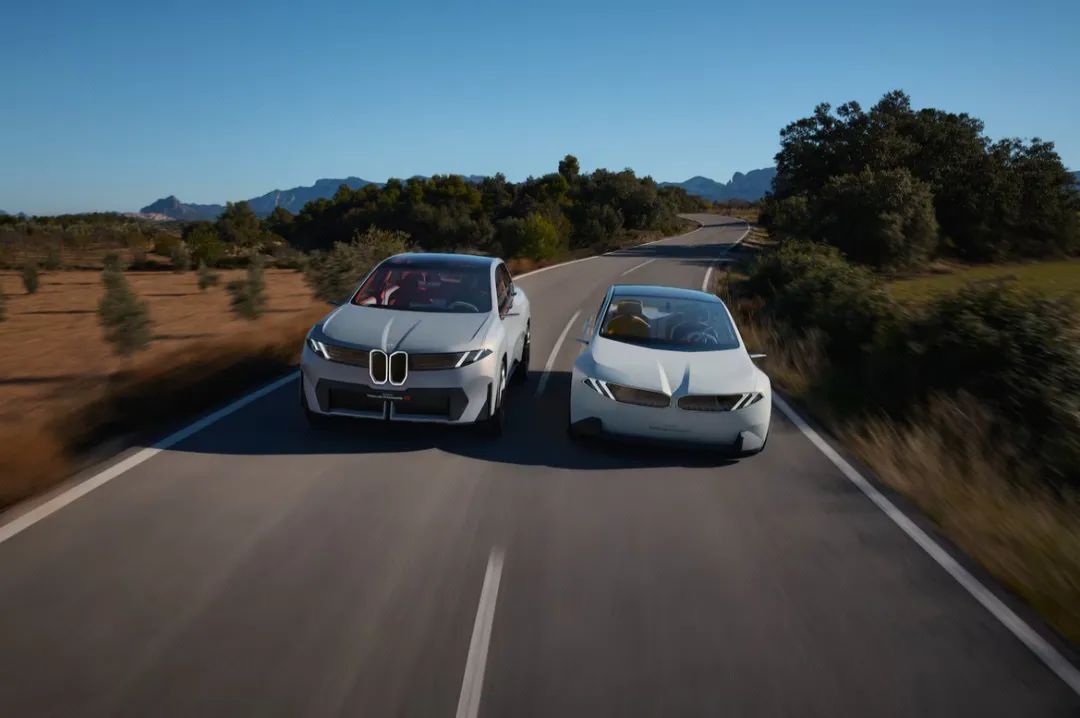
"Newcomers," Zipse said, without mentioning Tesla, "if they're not careful, they might age before they grow up."
"Zipse firmly believes that BMW is more than just a mere car manufacturer. 'Yes, BMW is indeed an automaker,' he promptly added, 'but at its core, it is a technology company adept at integrating a myriad of diverse technologies into a single product.'"
A substantial portion of BMW's batteries are sourced from suppliers such as CATL, which also supplies Tesla with batteries. However, BMW has developed its unique battery technology.
In a blue-gray, corrugated metal-walled building located in Parsdorf, a Munich suburb, BMW operates a small factory dedicated to testing new battery designs and manufacturing processes. One innovative change involves continuously mixing the slurry containing lithium and other active ingredients, as opposed to the traditional batch mixing method. This process not only speeds up production but also reduces costs.
Starting from 2027, BMW will exclusively produce electric vehicles in Munich, although it will continue to manufacture internal combustion engine models at other facilities. BMW boasts large factories in Shenyang, China, Spartanburg, South Carolina, and various other parts of Europe. The company has announced plans to commence electric vehicle production in the United States by 2030.
Unlike Audi and other competitors, Zipse has refrained from setting an expiration date for internal combustion engines, a decision that once drew criticism from environmental groups.
Benjamin Stephan, a transportation expert at Greenpeace Germany, wrote in an email, "If BMW makes a clear commitment to cease production of climate-damaging internal combustion engines, it could spearhead the transition of the European automotive industry towards electric vehicles."
However, Zipse emphasized that the future of the automotive industry lies in electric vehicles. BMW's sales of internal combustion engine vehicles have plateaued. "The fastest-growing segment is electric vehicles," he added, noting that electric vehicles "will soon dominate the market."
(This article incorporates reports from Automotive News, The Print, and The New York Times, with some images sourced from the internet)




